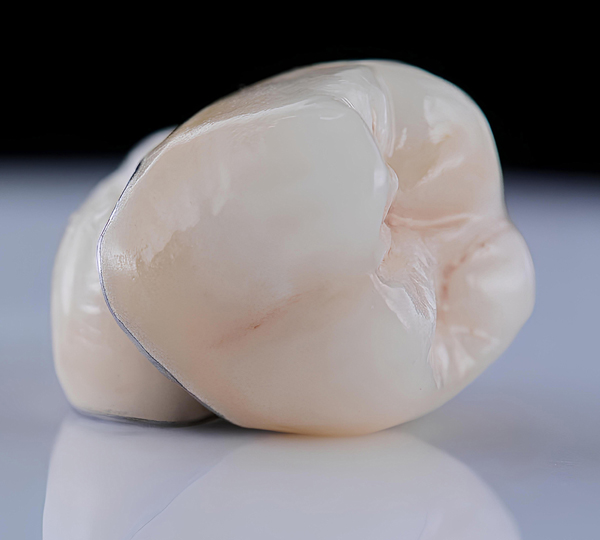Crowns
Dental crowns are custom-made restorations designed to cover and protect damaged, decayed, or weakened teeth. They play a crucial role in restoring the functionality and aesthetics of teeth, ensuring a natural look and feel.
Types of Dental Crowns:
Dental crowns can be made from various materials, each with its own advantages. The most common types include:
- Metal Crowns: Made from gold, palladium, nickel, or chromium, these crowns are highly durable and resistant to wear. They are ideal for out-of-sight molars due to their metallic color.
- Porcelain-Fused-to-Metal (PFM) Crowns: These combine the strength of metal with the natural appearance of porcelain. They are suitable for both front and back teeth but may wear down opposing teeth over time.
- All-Ceramic or All-Porcelain Crowns: Known for their excellent aesthetic qualities, these crowns are ideal for front teeth. They mimic the translucency of natural teeth and are a good option for people with metal allergies.
- Pressed Ceramic Crowns: These have a hard inner core and are layered with porcelain, offering a natural look and durability similar to PFM crowns.
Procedure:
The process of getting a dental crown typically involves two visits with one of our dentists. During the first visit, the dentist will prepare the tooth by removing a portion of the enamel to make room for the crown. An impression of the tooth is then taken to create a custom-fit crown. A temporary crown is placed to protect the tooth until the permanent one is ready. On the second visit, the permanent crown is cemented in place.
Benefits:
Dental crowns offer numerous benefits, including restoring the shape, size, and strength of a tooth, improving its appearance, and providing protection for a tooth that has undergone root canal treatment or has a large filling.

Types of Dental Crowns:
Dental crowns can be made from various materials, each with its own advantages. The most common types include:
- Metal Crowns: Made from gold, palladium, nickel, or chromium, these crowns are highly durable and resistant to wear. They are ideal for out-of-sight molars due to their metallic color.
- Porcelain-Fused-to-Metal (PFM) Crowns: These combine the strength of metal with the natural appearance of porcelain. They are suitable for both front and back teeth but may wear down opposing teeth over time.
- All-Ceramic or All-Porcelain Crowns: Known for their excellent aesthetic qualities, these crowns are ideal for front teeth. They mimic the translucency of natural teeth and are a good option for people with metal allergies.
- Pressed Ceramic Crowns: These have a hard inner core and are layered with porcelain, offering a natural look and durability similar to PFM crowns.
Procedure:
The process of getting a dental crown typically involves two visits with one of our dentists. During the first visit, the dentist will prepare the tooth by removing a portion of the enamel to make room for the crown. An impression of the tooth is then taken to create a custom-fit crown. A temporary crown is placed to protect the tooth until the permanent one is ready. On the second visit, the permanent crown is cemented in place.
Benefits:
Dental crowns offer numerous benefits, including restoring the shape, size, and strength of a tooth, improving its appearance, and providing protection for a tooth that has undergone root canal treatment or has a large filling.
Aftercare:
With proper care, dental crowns can last between 15 to 20 years, making them a reliable solution for maintaining dental health and aesthetics.

Aftercare:
With proper care, dental crowns can last between 15 to 20 years, making them a reliable solution for maintaining dental health and aesthetics.
